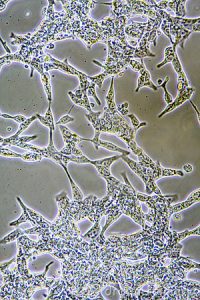Madeiran researchers have developed an educational game that uses augmented reality technologies and tangible interaction to teach science to children, thus seeking to break prejudices regarding this subject, which is often considered “challenging and complex.”
The results of the study were presented at an International Conference in Warsaw in February, precisely aimed at understanding the usability and efficiency of the game to promote chemistry learning and improve children’s interest in the area. Due to its complexity, previous results have shown low school grades which deter children from pursuing careers in science, technology, engineering, and mathematics.
The game, entitled “Periodic Fable,” presents children with science themes supported by an exploratory activity using manipulated cubes in an augmented reality.
“By using physical cubes, the game provides a tactile experience that allows children to manipulate and explore the elements of the periodic table in a practical way. Augmented reality further enhances the experience by adding a digital layer that overlaps information and animations the physical cubes, making the learning experience more engaging and immersive,” reads a press statement, which points out that this game aims to entertain children while engaging them with narratives about the fundamentals of chemistry and the Periodic Table.
“Children use a smartphone to acquire information about a specific chemical element, pointing the camera to the surface of cubes. Each side of the cube reveals text, audio, or animations about specific properties of some of the chemical elements,” explains Sandra Câmara Olim, a researcher at the Institute of Interactive Technologies.
The quantitative and qualitative results of the study showed positive outputs in learning and participant involvement.
“The children retained more information about Chemistry and the Periodic Table, allowing them to achieve higher scores in knowledge tests. In addition, students changed their perception of the discipline. What was once a difficult and boring topic became interesting and useful,” commented one of the researchers.
The study encourages the scientific community to continue to evaluate similar systems as tools to bring children closer to STEM (Science, Technology, Engineering, and Mathematics) areas.
In addition, the research brought new knowledge about the design and development of experiences based on augmented reality games using a multidisciplinary approach between school content, human factors, and technologies to promote children’s interest in Chemistry.
“Combining our technological knowledge with the pedagogical skills of teachers has allowed us to develop a fun and interactive game that uses narratives to create an emotional connection with children, thus improving their interest in the subject,” explains Sandra Câmara Olim.
The researchers plan to continue to evaluate the design and effectiveness of the game, conducting studies with more participants, and also intend to explore the long-term impact of augmented reality-based games on students’ perseverance in science education.
Samantha Gannon
info at madeira-weekly.com



